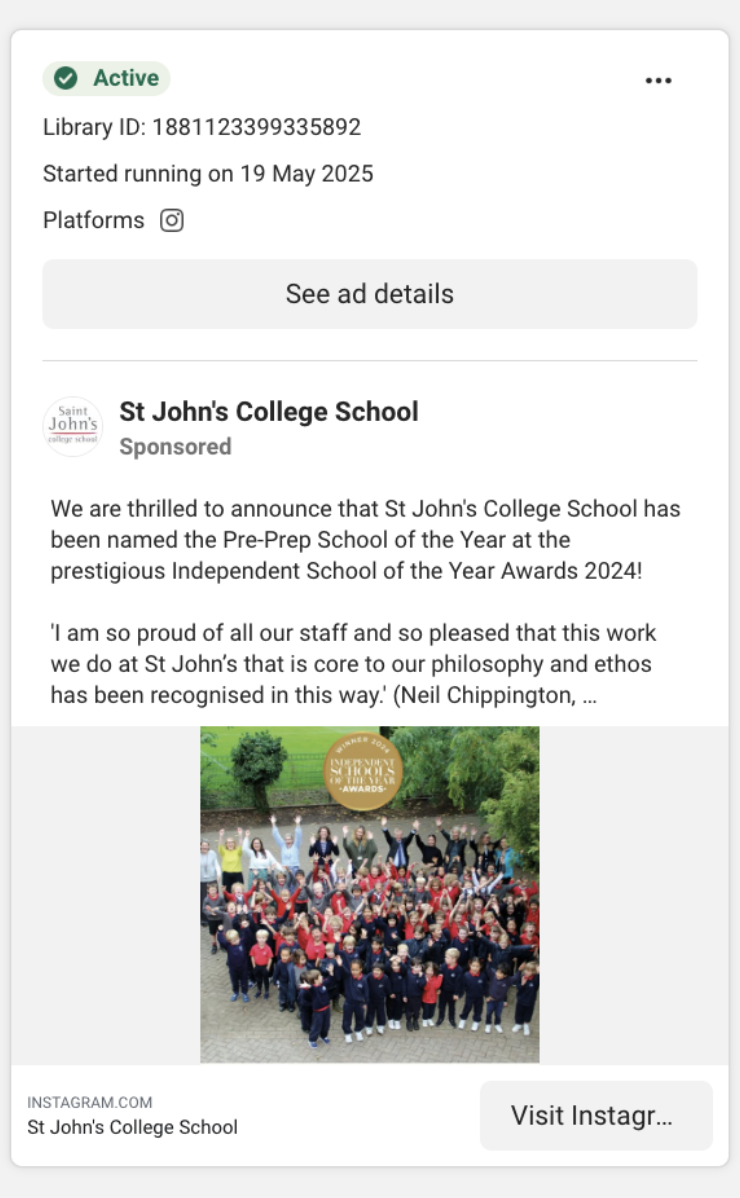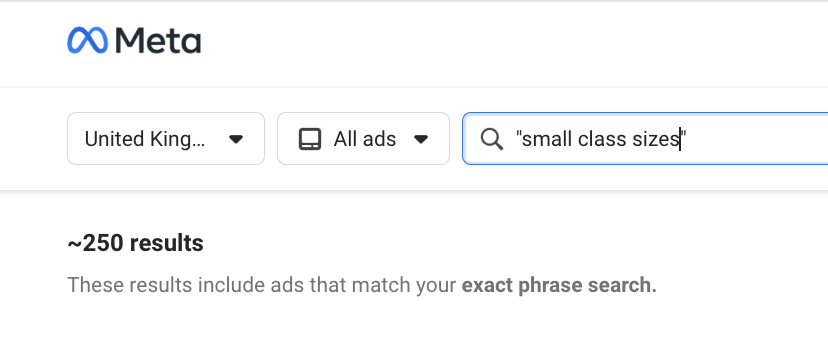Hi Polly,
You’ve earned a big win: Pre-Prep School of the Year. That’s no small feat. St John’s is known for its nurturing philosophy, early years brilliance, and a deep commitment to character as much as academics. Your staff bring energy, warmth and intention to everything they do.
But here’s the test…
Imagine a parent scrolling at speed — phone in one hand, school tabs open in the other, head full of deadlines, diaries, and dinner plans. This is an ad that parents like — but will they remember it tomorrow? Would they get a sense of what only you offer? Or would it blur into the same reassuring-but-generic noise we’ve seen from dozens of schools? Because when messaging blends into universally positive language, it becomes emotionally agreeable… but not commercially distinctive.
That’s not a dig, it’s a pattern. We’ve analysed over 100 school ads running right now in the UK, and most sound eerily similar. Same phrases. Same format. Same promises.
So we built a simple test, just a mirror. A moment of reflection. If you passed your ad in the wild, would you know it was St John’s? Would a parent?
St John's College School in the Wild
This is your current Meta ad. Let’s look at it through a parent’s eyes.
What’s Working
✅Award = strong social proof: Awards catch attention and validate quality. Leading with a “School of the Year” accolade is a smart move in principle.
✅Staff quote adds human warmth: Using Neil Chippington’s quote lends credibility and personality—he clearly cares.
✅Visual shows community: The image of staff and children together conveys joy, inclusion, and energy—great signals for Pre-Prep parents.
What’s Getting Lost:
❌No real parent hook: The ad celebrates the school—for good reason—but doesn’t translate that into why it matters for a parent choosing right now. What does “School of the Year” mean for their child’s daily life?
🗣️Headline doesn't tease a benefit: “We’re thrilled to announce…” is a soft opening. Compare that to something like: “The best Pre-Prep in the country? Here’s why parents think so.”
Without being too cringy - this causes something called paradox of choice. When every option looks the same, people don’t feel empowered. They feel overwhelmed. So they scroll past, not because they didn’t like what they saw, but because nothing stood out. If you're not subverting the pattern, you’re at risk of getting skipped over.




